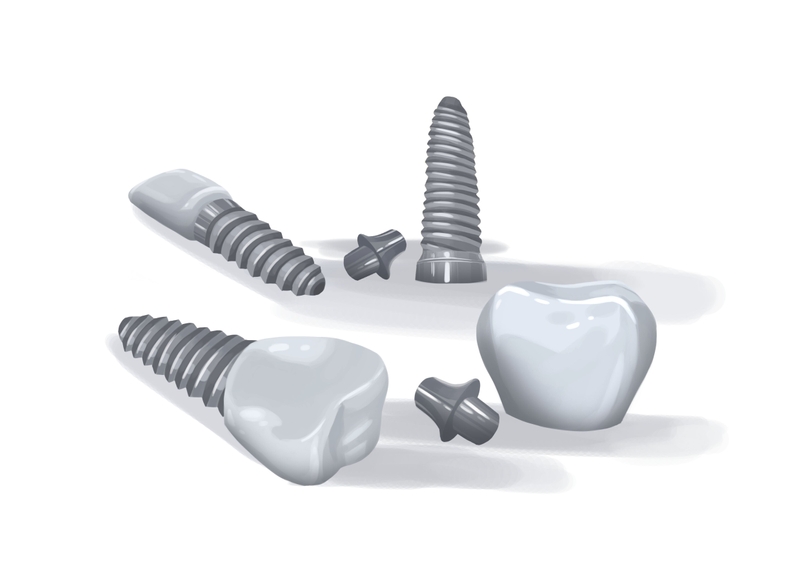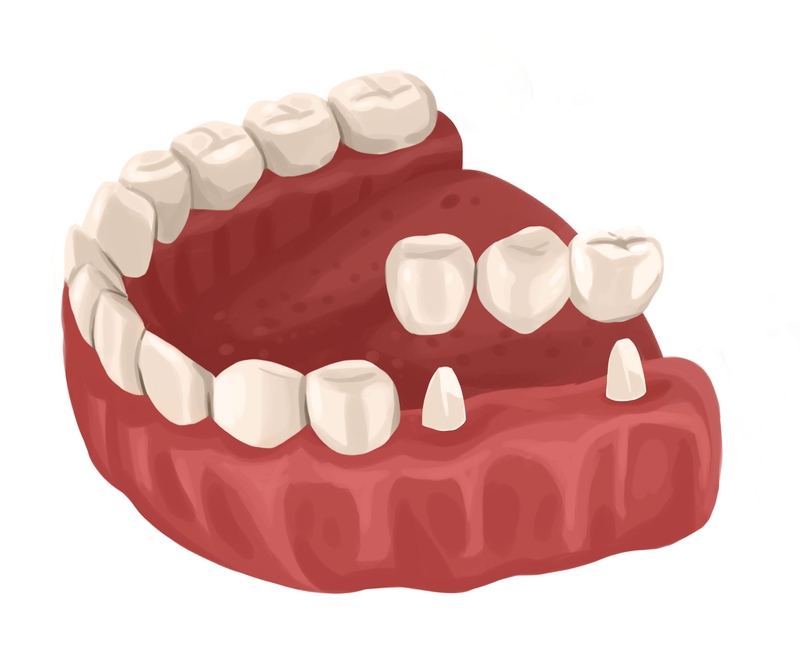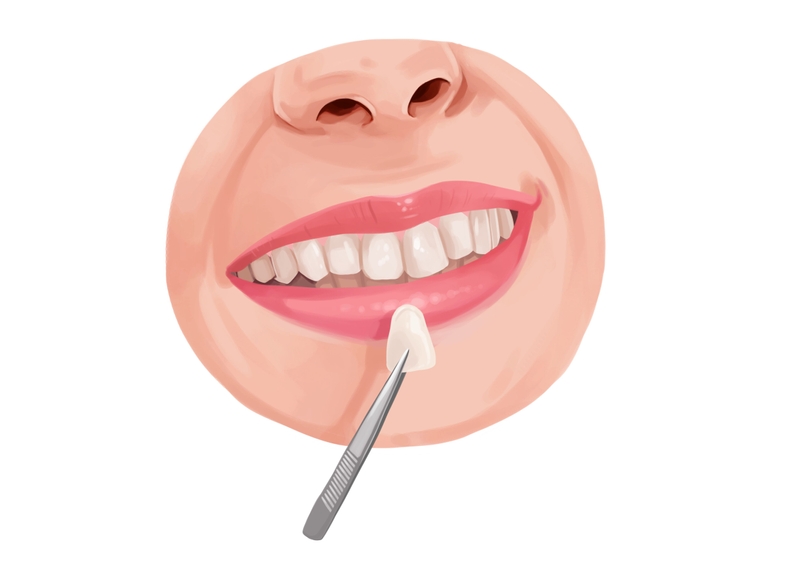- Dental implants are the most effective alternative to dentures, but they are not suitable for people with advanced bone loss.
- You can consider dental bridges if you do not miss an entire arch of teeth.
- Veneers can improve your smile, but to place one, you need a natural tooth.
Use Authority Dental to book an appointment for the dentures nearby, or sign up for a dental discount plan and save big on all dental procedures, including dentures.
Is there another solution for tooth loss? Here's everything you need to know.
Dental implants

Picture by Authority Dental under CC 2.0 license
Dental implants are the best alternative to dentures. You can use a single implant and an implant crown to restore one tooth, or you can pair several implants with a bridge to replace multiple teeth, or even an entire arch.
Implant-retained dentures are quite different from traditional ones. Dentures that use implant support are called overdentures. They can also be supported by remaining teeth, but are mainly used with implants today.
Overdentures look exactly like traditional dentures, but instead of using suction and adhesive to stay in place, they are secured by dental implants. The denture snaps onto the implants, preventing them from becoming dislodged when eating or speaking.
Lee says, "I often explain the fixed options with a simple analogy. A dental bridge is like building a roadway that spans the gap between two healthy teeth. To do this, we have to permanently reshape those healthy 'pillar' teeth and place crowns on them to support the bridge."
"It is a great, stable solution, but it requires altering healthy teeth and makes hygiene more challenging," he emphasizes.
Best tooth replacement option
Extremely stable
As functional as natural teeth
Expensive
Not an option in advanced bone loss cases
Long treatment time (many months)
Dental bridges

Picture by Authority Dental under CC 2.0 license
Bridges are an excellent option for those who do not have an entire arch of missing teeth. A bridge can replace one or two teeth in a row, but cannot typically extend more than that. However, if there is a natural tooth in the middle of missing teeth, that tooth can often be used for more stability, which might enable you to have an even longer bridge.
A bridge uses abutments, which are crowns that go on the adjacent teeth. The abutments connect to a pontic, a replacement tooth for the missing tooth. For example, if you are missing just one tooth, you would have two abutments on healthy teeth on either side of the missing tooth, and then the pontic in the middle. This is called a 3-unit bridge.
Bridges are not removable. Once they are cemented into place, they will stay there as long as they remain healthy. You will need to brush and floss the bridge to keep the gum tissue clean and the bone healthy. Even though an abutment will cover the natural teeth, they can still decay, so you must perform proper oral hygiene.
Natural appearance
Susceptible to decay
More expensive than a partial denture
Difficult to clean under
Removable veneers

Picture by Authority Dental under CC 2.0 license
Removable veneers are artificial teeth manufactured by a dental lab. Veneers look somewhat like a denture, but are made to cover your remaining teeth. They will not have any pink acrylic attached to them like a traditional denture does. You will need some remaining teeth to be a candidate for removable veneers. The removable veneers will clip onto your real teeth.
You can eat with these, but not everything. You should avoid hard or sticky foods, as they will cause the veneers to break. You should remove them before eating.
Aesthetically pleasing
Quick treatment
May not last as long as dentures
Can't eat all foods with them

FAQ
What is cheaper alternative to dentures?
Conventional dentures are the cheapest, most cost-effective replacement for your natural teeth. The only cheaper alternative is to do nothing, which will lead to future complications and an inability to consume a proper diet. A partial denture will be cheaper than a complete denture, as long as you do not need to replace all the teeth in an arch.
What is the most durable alternative to dentures?
Implants are the most durable alternative to dentures. They are just as strong as your natural teeth and function just as well. Implants can be used to stabilize an overdenture, which is a more durable alternative to traditional dentures. The next best option is a bridge, but it will not replace the entire arch.
Harry Lee, DMD
When a patient is missing a few teeth, they often focus only on filling the gap. However, from a dentist's perspective, the most important question is how we fill that gap, because the choice has a significant impact on the health of the surrounding teeth. The decision really comes down to choosing between a removable appliance and a fixed one.